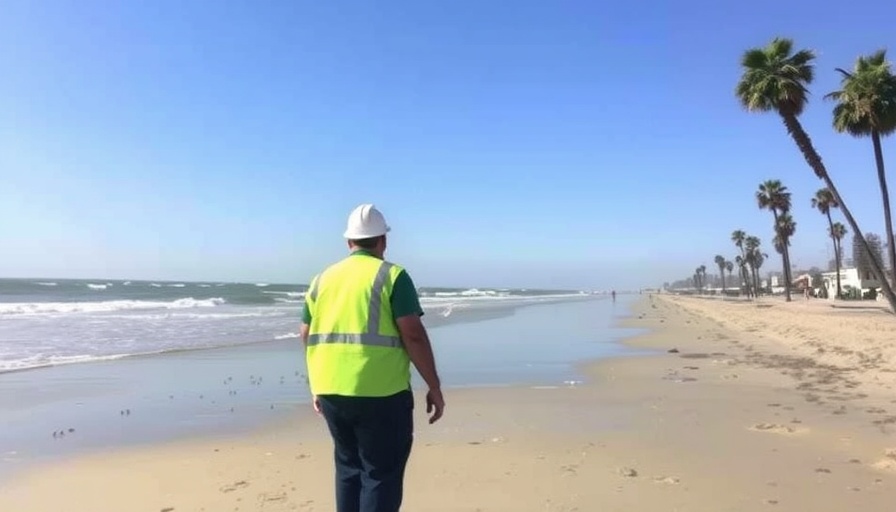
A Battle for the Future of Long Beach's Coastline
A legal clash in Long Beach has unfolded around Catalina Landing, a property that serves as a pivotal hub for local maritime activities. This dispute is not merely about dredging; it encapsulates broader themes of urban development, environmental stewardship, and fiscal responsibility. At the center is the lawsuit filed by the city against TIC Catalina Landing LLC, which alleges a staggering $3.75 million in unpaid fees, a number that reflects the complexities of managing a sought-after coastal location.
The Dredging Dilemma: A Closer Look
Dredging is a vital process for maintaining water channels, ensuring that vessels can navigate with ease. For Catalina Landing, it’s especially crucial because the property includes significant docks used by ferry services. According to CITY OF LONG BEACH, TIC Catalina Landing was obligated to make contributions toward maintaining adequate water depth. However, the company contends they halted payments due to the city’s lack of action on dredging operations, which have only been completed once in over 20 years.
The Financial Tug-of-War: Who’s Paying for What?
TIC Catalina Landing claims to have funneled millions into maintaining the waterfront property, while accusing the city of mismanaging dredging fees. They argue that instead of applying funds toward dredging the channel—which is estimated to cost just a few hundred thousand dollars—the city diverted these contributions to other projects. This ongoing financial tug-of-war raises questions about fiscal transparency, especially considering the city has reportedly accrued substantial revenues from parking fees that were intended to cover dredging costs.
Public Access vs. Private Interests: A Community Debate
At its core, this lawsuit reflects a larger community debate: what are the obligations of public entities versus private companies? Supporters of both parties argue different sides, with some claiming the city’s responsibility is not just about dredging but also about maintaining public amenities. Others argue that failing to uphold dredging agreements jeopardizes local businesses that rely on passenger ferries.
The Historical Context: Learning from Past Disputes
This isn't Long Beach's first encounter with Catalina Landing and dredging issues. A previous lawsuit in 2005 against another company managing the property resulted in a settlement that created a dedicated dredging fund. This historical precedent could play a crucial role as both parties prepare to meet in court once more. Legal expert commentary indicates that previous resolutions could set the stage for insights into root causes behind current disputes.
Future Predictions: What Lies Ahead for Catalina Landing?
As both parties gear up for a case management conference on October 6, the potential consequences of this lawsuit ripple throughout Long Beach. The outcome may fundamentally alter financial responsibilities regarding waterfront maintenance. Should TIC win their countersuit, it could signal a shift in partnerships and agreements between the city and private enterprises in the area, reshaping urban management strategies long term.
Broader Implications of the Long Beach Lawsuit
The Catalina Landing lawsuit serves as a microcosm of similar tensions across the state and nation, where urban developments intersect with environmental management. As more cities grapple with maintaining their waterfronts, lessons learned from this dispute may offer insights into structuring better partnerships that serve both public interests and private investments.
As residents in and around Bakersfield, it’s essential to be aware of such landmark cases that may affect our local communities. Whether you’re invested in coastal property, a business reliant on film and tourism, or simply an engaged citizen, understanding the economics behind municipal decisions can help you appreciate the delicate balance involved in waterfront management.
Stay informed about developments in your local area. Community participation can influence these critical decisions that affect not only our environment but also our economy.
 Add Row
Add Row  Add
Add 



Write A Comment